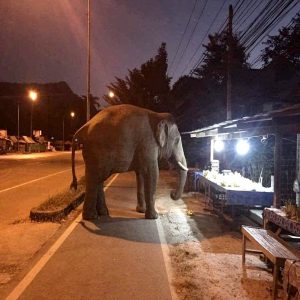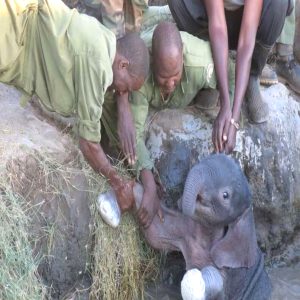PORTLAND, Ore. (KATU) – The Oregon Zoo is mourning the death of Lily the elephant. She died suddenly Thursday night, a day before her sixth birthday.

The Oregon Zoo says veterinarians and care staff made exhaustive efforts to save her, but she died of a sudden onset of endotheliotropic herpesvirus (EEHV). It’s a rapidly progressing and often fatal disease. Elephant calves are particularly susceptible to it.
“I can’t imagine a more devastating loss for this zoo family and our community,” said Dr. Don Moore, zoo director. “Lily was the darling of the zoo. She was loved by everyone from her elephant family to the people who cared for her every day to her thousands of fans. Our staff did everything they could and fought to save her until the very end. Everyone is in mourning here. It is just heartbreaking.”
Moore said the zoo will remain closed all day Friday, including during ZooLights. They plan to reopen Saturday.
EEHV is present in almost all Asian elephants, both in wild populations and those in captivity. Typically, it only causes mild or no symptoms, but for reasons unknown, it can sometimes come out of latency and cause disease.

Once the disease becomes active in calves, it is usually fatal and will often kill them within a few days, even with intensive treatment.
The Oregon Zoo routinely sends blood samples to the Smithsonian’s National Elephant Herpesvirus Laboratory to monitor the virus.

On Wednesday, blood sample analyses from the Smithsonian’s lab revealed the virus was active in Lily at very low levels. The OregonZoo said at that time, she showed no signs of the disease.
However, the next morning, Lily began showing signs of lethargy and disinterest in food, prompting veterinary staff to begin immediate treatment with fluids and antiviral medication. She was also given a transfusion.
Despite their efforts, Lily succumbed to the illness.
Currently, there is no vaccination against EEHV. Scientists at the Smithsonian and Johns Hopkins University developed a blood test in 1999 that can detect the virus when it becomes active.
Unfortunately, once the virus is active, there is usually very little time to treat an elephant.
The Oregon Zoo says the virus is harder to identify and diagnose in wild elephants.

“It’s very difficult to study the virus in wild elephants,” Moore said. “But zoos can monitor their elephant herds closely and obtain samples of blood and other fluids. Right now, that’s our best hope of developing a vaccine.”
For the past 16 years, the Oregon Zoo has been contributing funding and blood samples from its elephants to the Smithsonian lab as part of an international effort to find a vaccine or treatment for EEHV.
Lily was the daughter of Rose-Tu, another popular zoo elephant and the great granddaugter of Rose, the zoo’s first elephant.
The zoo had a grief counselor available for the staff Friday. And zookeepers said the elephants have their own way of grieving, and they could see that Friday.





